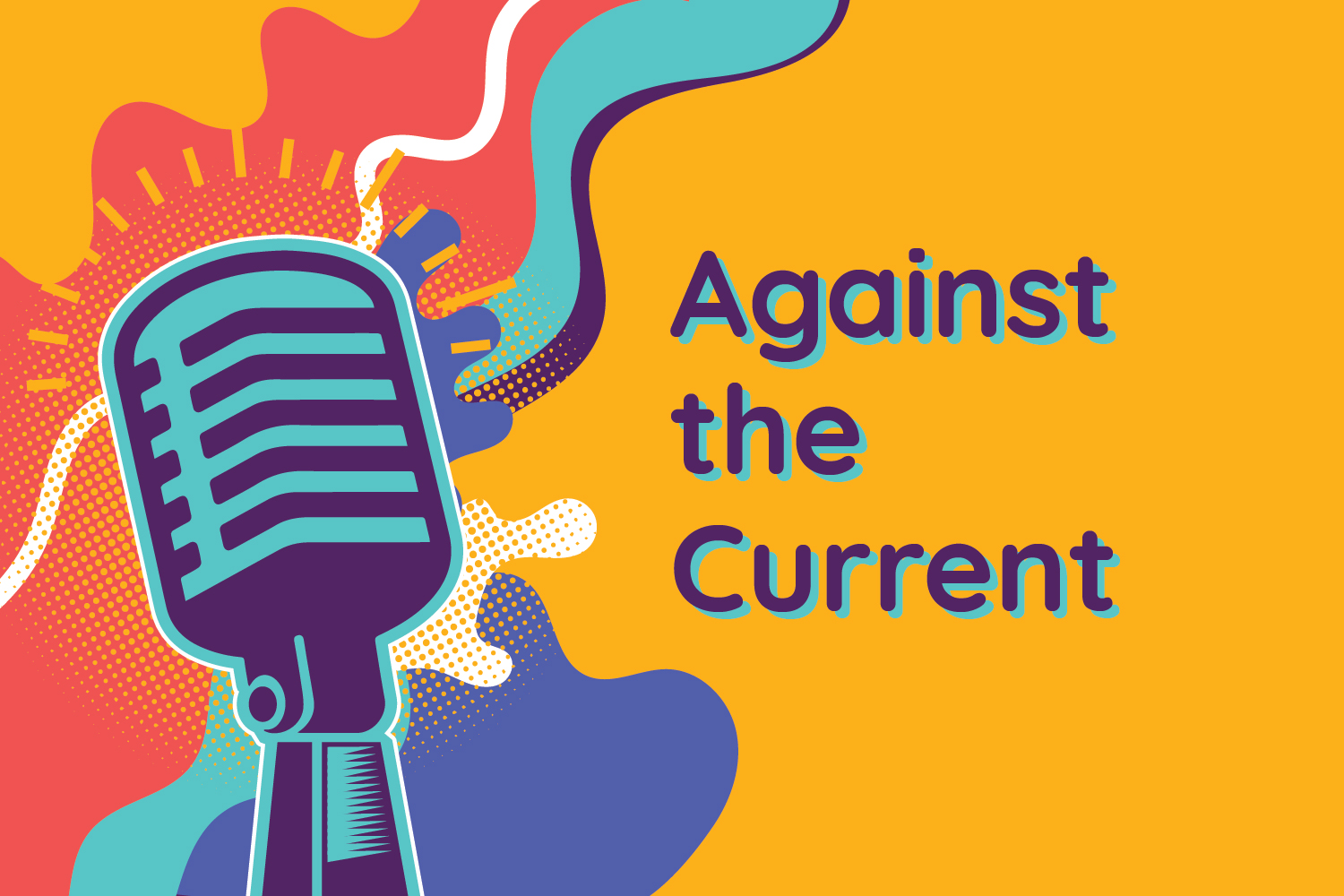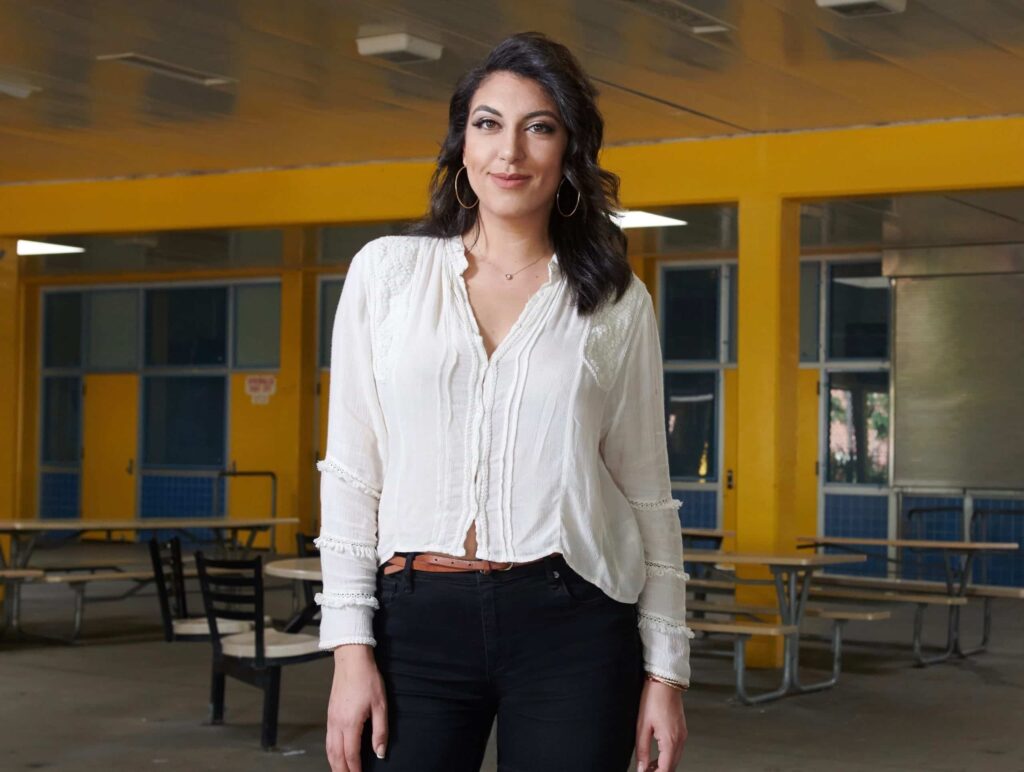Against the Current: Rachel Sumekh
How are young nonprofit leaders inspiring change? Learn about Rachel Sumekh’s work, leadership, and approach to challenges in the nonprofit sector.

“I love finding untapped resources and developing creative ways to leverage them to make people’s lives better.”
Rachel Sumekh is the innovative mind behind a leading nonprofit that tackles hunger amongst college students. I’ve worked on student hunger and engagement for a while, and when I heard about Rachel’s work with Swipe Out Hunger and her success getting food contractors to reimburse the balance of student meal cards at year’s end, I immediately wanted to learn more.
1. What’s your thing…not what you do, but why you do what you do?
I love finding untapped resources and developing creative ways to leverage them to make people’s lives better. The other thing that gets me up in the morning is living a life that models for young women, especially women from first generation communities like mine, opportunities beyond what they can currently conceive is possible.
2. OK, now tell us what you do.
I’m the founder and CEO of Swipe Out Hunger, a national nonprofit that is committed to ending college student hunger. Primarily, we do this by giving students a way to donate their unused meal swipes to their peers. One in three college students is food insecure by USDA standards and we operate programs to address this on over 100 campuses. We have written and passed a bill that has sent over $20 million towards programs that address student hunger on campus, so we’re focused upstream too.
3. As a young leader, what makes you want to scream most about the state of philanthropy? What gives you the most hope for our sector?
Every funder boasts about wanting to fund “new innovative” programs, which in theory, is great. There are two challenges to this in reality. The first is that many funders still require you to prepare documents and go through a process that you’d have to be a fundraising veteran to understand. Secondly, many funders aren’t open to taking risks. On a weekly basis, I dream about what our sector would look like if foundations invested in nonprofits the way venture capitalist invest—big, bold investments in a founder’s vision.
I find hope in the power of relationships. I have seen bureaucratic policies and red tape disappear once a deeper relationship is forged. The increasing prioritization of people and relationships over formalities gives me hope.
4. If you could get the ear of a presidential candidate, what law or policy would you most urge them to enact, and how would it radically rock your world?
Going with a classic idea–I would make college free. Additionally, I would ensure that students who need additional support with food or books get it. It would mean that in the most basic way, all students get to start college closer to the same starting line.
5. How much money would you need to truly run wild and what would it allow you to do?
We have about 700 students across our 105 university sites who are committed to ensuring their peers have access to their basic needs. Now, we need something beyond money. We need national mobilization, and that takes time. With that said, receiving $3 million a year for three years would put the fire under our already high-performing national network. The movement would demand that campuses and policy-makers put the needs of students as their top priority, rather than fancy dining halls or big stadiums.

6. What was the last code word, bizsplaining moment or condescending comment you got from an elder, and what did you say, or wish you could have said, to push back?
About six months ago, a longtime nonprofit CEO cut me off as I was explaining my work and told me that what we’re building is just a band-aid… and that I should close up shop and just focus on policy change. It enlivened every cell in my body. He both assumed he knew what I was going to say and that it would be invaluable. It also showed he had no interest in actually getting to know or work alongside us.
Few things are more powerful than a deep breath, so I filled my lungs with patience and exhaled saying, “I’m sure you get many up-and-coming young entrepreneurs who come into your office and a year or two later they’ve moved on. I understand why you might be skeptical that I’m the same.” I then got the chance to finish sharing about our work – both our theory of change and our policy work. We spent the following hour learning from each other. He even pulled in his staff to join. Just last week our teams were on a call together because I gave him the chance to see that we are assets to each other’s work.
7. Talk about your best elder ally, and how they inspired you through their actions.
My biggest ally has always been my father. I remember driving to a funder pitch meeting one day and feeling so overwhelmed by work that I called him for guidance. I barely made it a minute in before bursting into tears. The biggest gift my father gives me, as he did in that moment, is perspective and a reminder to act with grace towards others.
8. Many talk about diversity in the sector, or the lack of it. How do you and your org walk the walk?
I lead in a way that prioritizes a new set of values. Rather than valuing traditional experience, connections, and degrees, we spend time questioning what qualities are most beneficial and strategic to our work. That means we look for team members, students, and partners who have immense potential and passion, and we consider lived experience as equal to a degree. I started as a 21-year-old woman of color. Nothing “qualified” me for this job other than my drive. How can I possibly preach anything other than equal opportunity?
9. Tell us about another young leader everyone should know about?
My friend Louis Tse is a thermal engineer at NASA’s Jet Propulsion Laboratory. While getting his PhD, he chose to live in his car so that he could raise enough money to open up a shelter for college students who are homeless.
“The way I see it,” he says, “the math made sense: One life sacrificing for the lives of several others.” He has now built up his nonprofit, Students for Students. They have a shelter fully run by college volunteers at UCLA and a second shelter that just opened, run by students at USC. They serve any college student in need of housing.
10. What do you want to be able to say about yourself and your leadership in 20 years?
I want to have been a part of a wave of nonprofit professionals who came from little, and instead of forcing the generation after us to go through the same hoops we did, we opened the doors and made it easier.
I’ve been working on Swipe Out Hunger for six and a half years full time and in just that time, I have seen the entire industry of higher education start to change. Over one hundred campuses have full time “basic needs” staff. This change was possible because we continued to pivot. Our organization has gone through four evolutions because we changed as the environment did, so we could provide solutions with even more precision. I want to leave a legacy where this evolving model of nonprofit leadership is encouraged by our sector leaders and understood by our funders.
11. What has been your greatest asset that you initially underestimated?
It took me a while to gain perspective here, but being a first-generation woman has been a huge asset to me as a founder. I feel that I bring an air of warmth, inclusivity, and attentiveness to the room. It means more people contribute and better ideas can be generated. As a Middle Eastern woman, I was raised in a tribal and intimate culture with a focus on hospitality. These two skills are a huge reason why I forge deep relationships with people of all backgrounds.
You might also like:
- Vision Before Strategy: A Nonprofit’s Guide to Defining Success
- Hedging Your Bets: Rajiv Shah, and the Limits of Large-Scale Changemaking
- Unlocking Potential: Collective Leadership in Nonprofits
- From Crisis to Clarity: Five Steps to Demystify Succession Planning
- The Expanded Matrix Map: Leveraging Your Triple Bottom Line for Fundraising
You made it to the end! Please share this article!
Let’s help other nonprofit leaders succeed! Consider sharing this article with your friends and colleagues via email or social media.
About the Author
Articles on Blue Avocado do not provide legal representation or legal advice and should not be used as a substitute for advice or legal counsel. Blue Avocado provides space for the nonprofit sector to express new ideas. The opinions and views expressed in this article are solely those of the authors. They do not purport to reflect or imply the opinions or views of Blue Avocado, its publisher, or affiliated organizations. Blue Avocado, its publisher, and affiliated organizations are not liable for website visitors’ use of the content on Blue Avocado nor for visitors’ decisions about using the Blue Avocado website.








